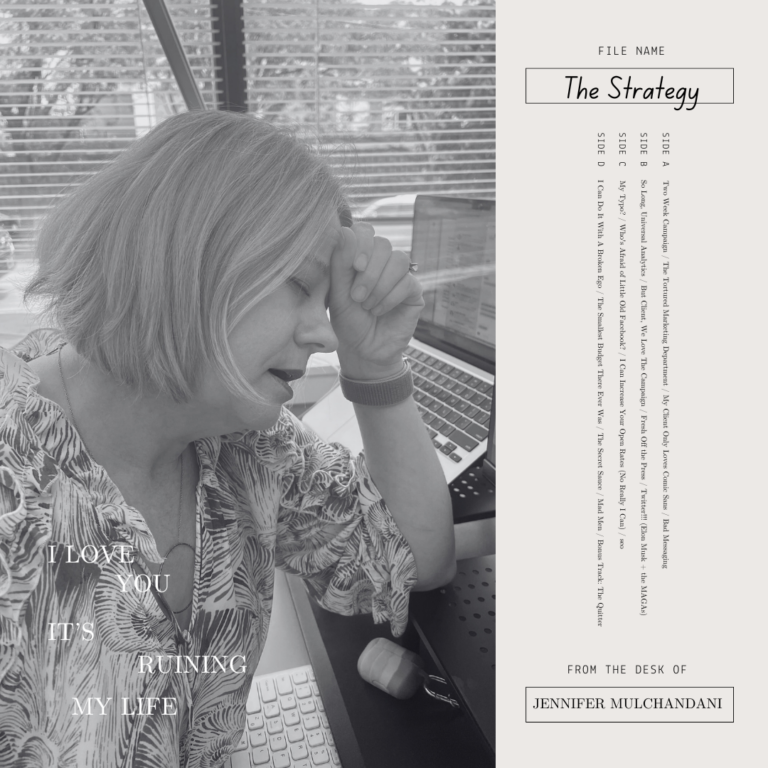What sells?
Clients ask me this, and whether they have a service or packaged product, knowing what sells is an important consideration. The ‘what’ is mostly about messaging, and the messaging is mostly about the brand’s value proposition.
Know Your Value Proposition
Or in simpler terms, know how you are better and different from your competitors. Often new businesses are so busy readying their storefront, website, or brand identity that they don’t take the time to really contemplate how they stack up to their competitors.
Be Authentic/Know Your Competition
I have done a fair amount of market research for my clients to help them both identify and articulate their key product/services differences. What sells varies by industry, but how to sell can often be successful when the messaging is authentic. Empty promises of “best, faster, more” don’t communicate true differences.
How can a business be authentic in presenting their value? I love when a business owner has the guts to compare themselves to their competitors. And not in a trashy, everything-about-them is inferior kind of way. An authentic comparison acknowledges an alternative’s benefits, but is confident that its overall superiority can sway the purchaser. “While my competitor also does quality work, I offer an unparallelled guarantee as well
as superior communication.” All business owners need to know their competitors strengths, not just their weaknesses. You need to be prepared to answer the direct question of a potential client or customer, “how are you different from so-and-so across town?” Your customer does not want you ticking off the competitor’s inferiority; your customer wants you to sell them on YOUR strengths.
An Authentic Example
One of my clients, Tutoring Club of
McLean has to answer the “how are you different” question every day. The answer is both simple, but powerful. Tutoring Club of McLean is a locally owned and operated franchise, with the warm and enthusiastic Owner/Director Michelle Scott at the helm. The personal attention that students and their parents receive is a key reason why families choose Tutoring Club of McLean. The bond that Michelle has developed with her staff and her customers is a clear value to the students. Her personal commitment to every student’s success is reflected in the unparallelled guarantee that she offers. Michelle makes a claim, but backs it up with a guarantee. A perfect example of a value proposition!
My Value Proposition
I’ve been asked in sales meetings how I am different. I know there are many small marketing firms in my area with talented strategists, who the client would do well to hire, and many that I respect. How I am different includes my personal qualities, my pricing strategy and our goals-driven approach. I outline how Arlington Strategy puts together a team specific to every client’s business needs, and how this is different from firms who have a set group of staff who service everyone. I’ve built Arlington Strategy to offer expertise across the spectrum from designers who excel at brand development and collateral design to technical developers who can translate design into websites and apps. For clients who want campaign delivery, we have social media experts, consumer marketing expertise and experienced PR pros. Not every client needs every capability, and I price accordingly. And because my clients always have direct access to me, my own style and enthusiasm is a key difference. Some potential clients won’t like my value proposition; they would prefer a larger firm, or a one-person shop, but I stand behind what sets me apart. Your value proposition is what makes you different, not what makes you the same as everyone else.
Identify Your Value Proposition
Want help to identify your value proposition? Consider these prompts:
- Who are my competitors? (If you really don’t know, I urge you to find out!)
- How do I price compared to my competitors?
- How is the quality of my product or service compared to my competitors?
- How do I source my materials? Is the focus quality, price, both?
- What are the minimum qualifications of my staff?
- Do I have payment policies or a satisfaction guarantee that are unique?
Answer these questions (and more that you can come up with specific to your business) and then highlight the qualities that you are most proud of. This is important, because the enthusiasm of the business owner in standing behind their key differentiators is important. Next, highlight the attributes that your target market most cares about. [You must know your target market!] Focus your value statement on your most proud difference, and your target markets most valued component(s). For example, if you are a luxury car brand, price may not be as important of a difference as if you were an entry level car brand. For a luxury brand, quality of materials, craftsmanship, power, country of origin might be the more important differentiators.
Whether you go through this exercise yourself, or with the help of a firm like Arlington Strategy, I urge all small business owners to spend the time and get it done.


